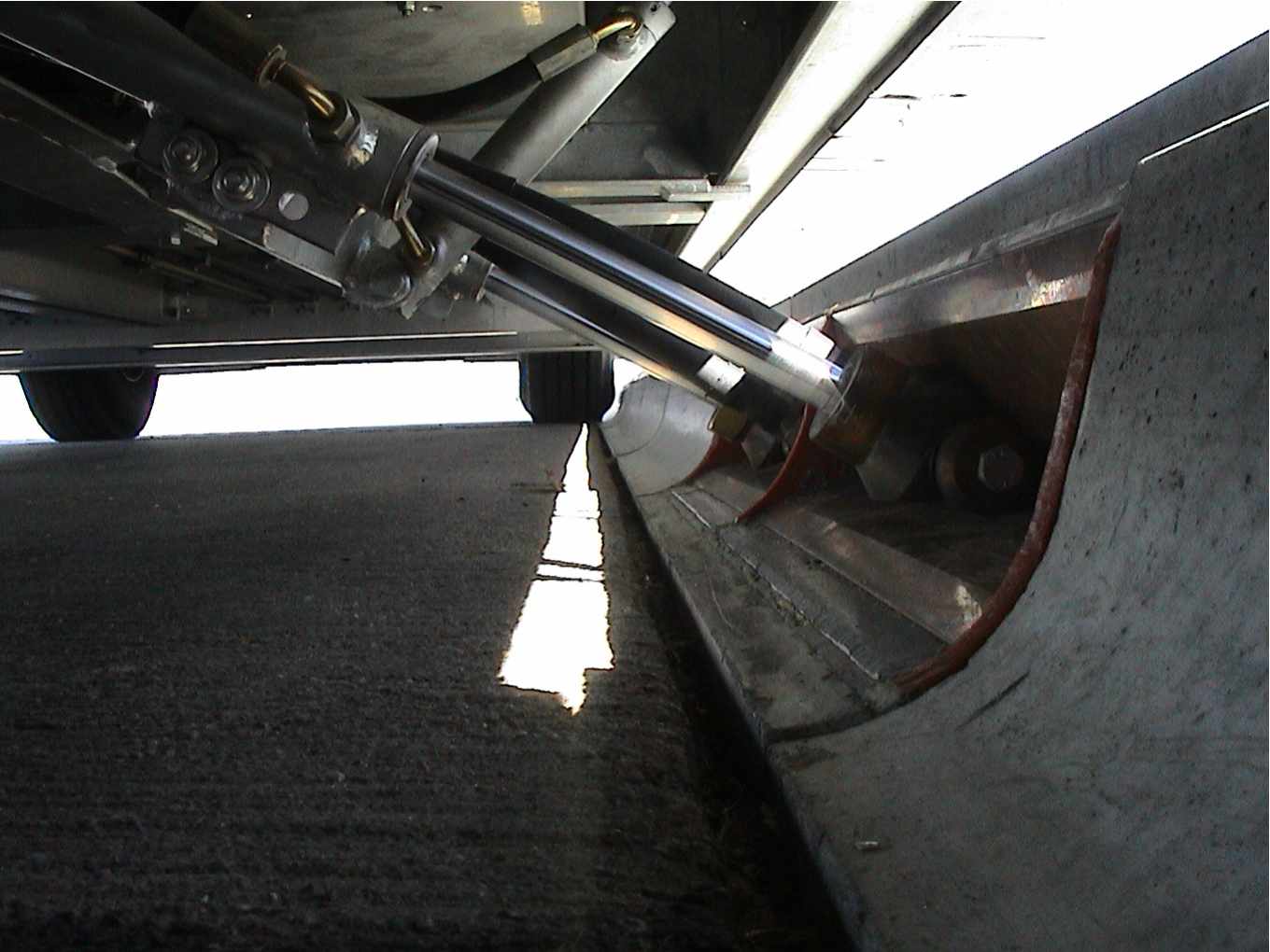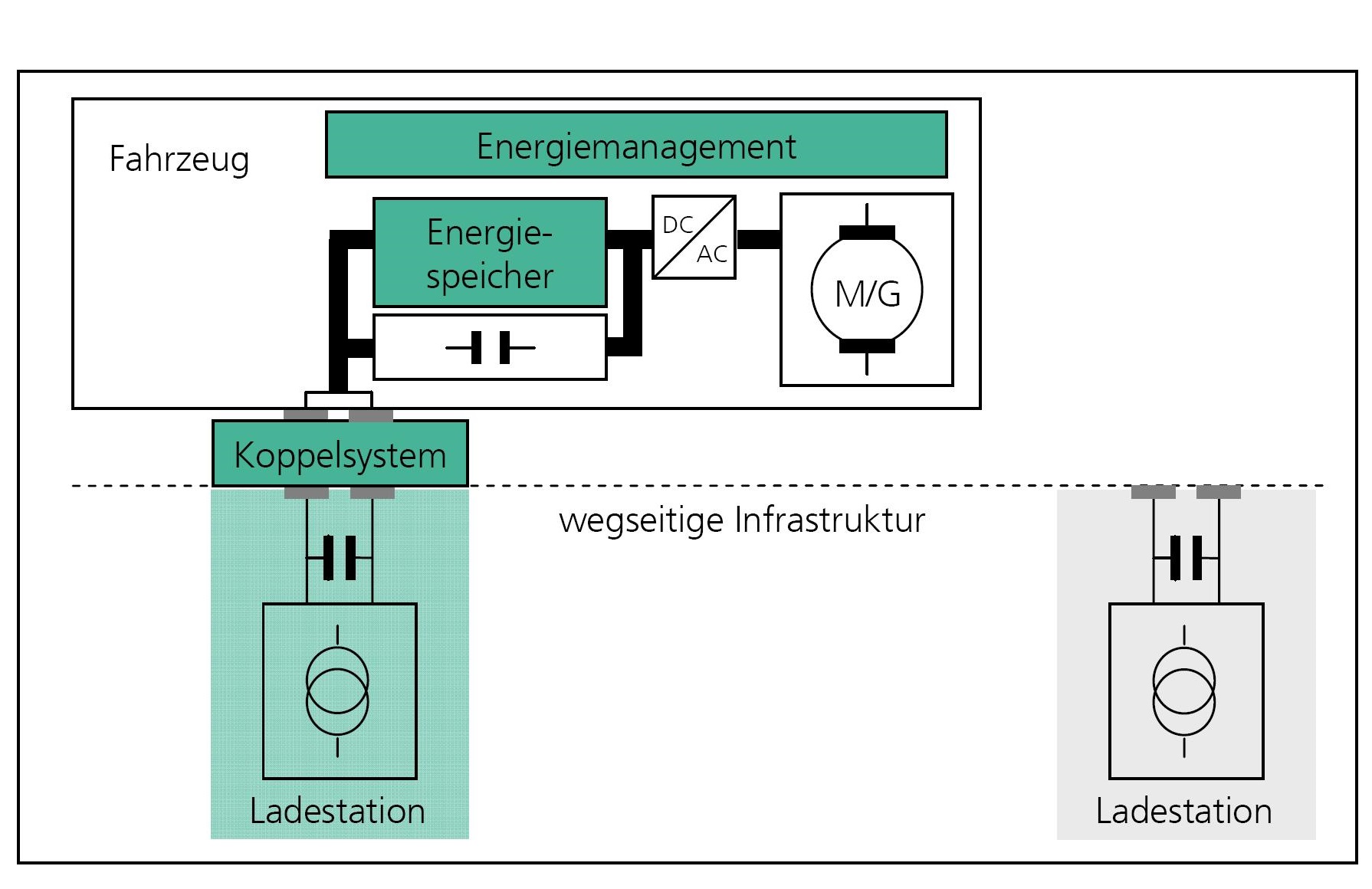The Fraunhofer IVI has been working towards the implementation of a fully electric bus operation following the »DockingPrinciple« for over ten years now. Through their participation in numerous different projects, both collaborative and internal, the institute's researchers have made considerable contributions to the further development of the key components.
The recharging of electric storage units by short-term docking into a roadside charging station, for example, have been demonstrated successfully using the AutoTram®, a demonstrator vehicle for innovative propulsion technologies and lane guidance systems. The first prototype of the necessary equipment was an underbody construction combined with a specific charging curbstone. Within subsequent research undertakings, the further development of this recharging technology has been driven forward.
Within the project »DockingPrinzip« (»DockingPrinciple«), the physical fundamentals of conductive electrical contacts for current transmission and their system advantages over inductive approaches were established. Some of the results obtained by the institute during their participation in the Fraunhofer System Research for Electromobility are prototypical solutions for a high-current transmission system to be incorporated in a vehicle roof layout, as well as for the provision of energy from a medium-voltage grid.
Along with their profound knowledge about the operating procedures of public bus transportation, the Fraunhofer IVI contributed the results of their preliminary research in the field of conductive energy transmission systems to the project »SEB-EDDA«. Within this project, they collaborated with industry partner Schunk Transit Systems GmbH to develop a market-ready smart charging system. Another result of the project was the system’s approval for implementation in buses used in public transport given by the TÜV Rheinland. Finally, the system’s reliability under regular operation conditions was demonstrated successfully.

